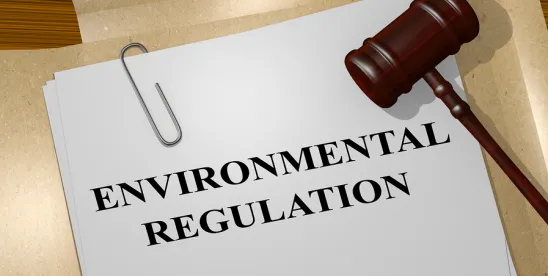While the majority of the discourse surrounding the upcoming November general election has focused on the presidential race, a change in control of Congress may also be a possible outcome. A flip in partisan control of the Senate or House of Representatives could have significant impacts on the regulatory landscape.
In particular, it can be expected that a partisan flip in congressional control would result in increased utilization of the lookback provision of the Congressional Review Act (CRA), 5 U.S.C. § 801, et seq., in an effort to challenge any late-term regulatory efforts by the Biden administration. These challenges could be particularly prevalent in the environmental sphere, where the partisan battle lines have been sharply drawn.
The CRA
The CRA, enacted in 1996 as part of the Small Business Regulatory Enforcement Fairness Act, requires federal agencies to submit all new final rules to Congress for review before they can take effect. The CRA requires only a simple majority vote in both houses to disapprove executive rulemaking. The CRA also contains a lookback provision that create a window for Congress to review and potentially overturn rules submitted late in a president’s term after a change in administration.
The CRA lookback provision (5 U.S.C. §801(d)) provides that if a rule is submitted to Congress with either less than 60 days of session in the Senate or less than 60 legislative days in the House of Representatives remaining before the adjournment of a session of Congress sine die, there will be a window for review of that rule during the next session of Congress. Accordingly, if the party in opposition to the outgoing president gains simple majority control of both houses of Congress, that party has an opportunity to challenge and reverse any late-term rulemaking by the outgoing administration.
Historically, congressional utilization of the lookback provision has spiked in years in which there is a partisan flip in Congress. For example, when the 2014 election resulted in unified control of Congress by the Republican Party, there was a significant uptick in utilization of the lookback provision in the next congressional session. Its use has also increased when there is a partisan change in control of the executive branch that results in single-party control of the White House and Congress, such as in 2017 when a record number of challenges under the lookback provision occurred.
The Coming Election
Current polling suggests a tight race for control of Congress in this upcoming election. Should it result in Republican control of both houses of Congress, it can be expected that the Republicans will utilize their authority under the CRA’s lookback provision to challenge any late-term rulemaking by the Biden administration. These challenges would likely be made across the board, but late-term environmental regulatory efforts could be a particular focal point given the historical divide between the parties on this issue in general and the sharp disagreement with the Biden administration’s rulemaking in this arena over the past few years.
While it cannot be said with certainty yet when the actual CRA lookback provision cutoff occurred (as the House of Representatives could still add legislative days to complete legislative work), the Congressional Research Service estimates that any Biden administration rules that were submitted to the House or Senate on or after August 1, 2024, are likely subject to the CRA lookback provision. Other commentators are of the opinion that, because of the long August recess and the planned recess this month, the cutoff date occurred earlier, in late June or July. Ultimately, the actual cutoff date will be determined by congressional parliamentarians after Congress adjourns.
The exact determination of the cutoff date may have significant impacts in regard to environmental regulation in particular, as the Biden administration engaged in a flurry of rulemaking activity in this arena this past spring.
Conclusion
Accordingly, although the lion’s share of the public’s attention has been focused on the presidential race, whether or not control of Congress changes after the coming election could have significant impacts on the environmental regulatory landscape and corresponding significant impacts on the businesses and industries subject to these regulations.





 />i
/>i
